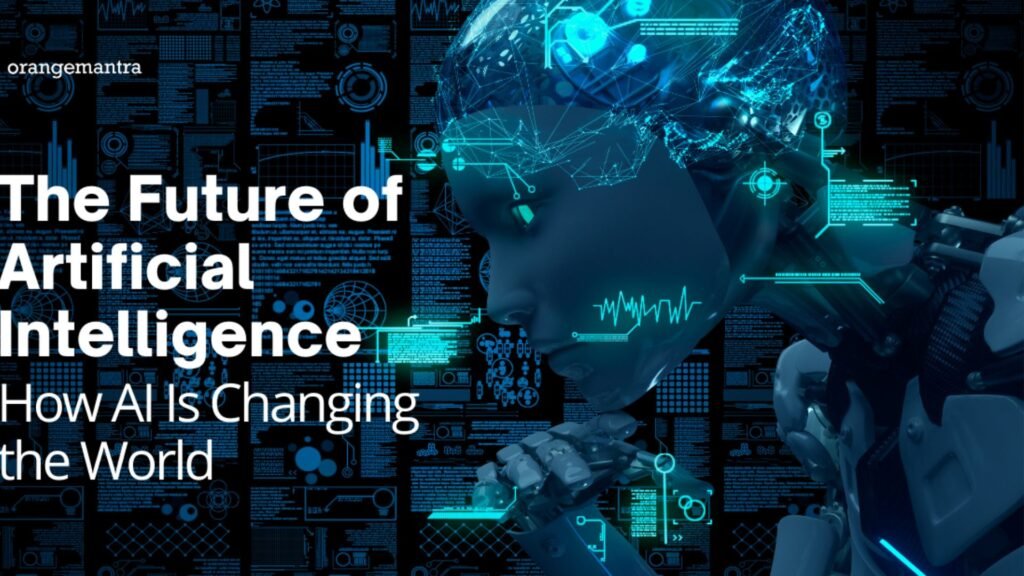The Future of AI: How Artificial Intelligence is Shaping Tomorrow’s World
Artificial Intelligence (AI) is rapidly advancing, transforming various sectors and reshaping the way we live and work. As we delve into the future of AI, it’s clear that its impact is becoming increasingly profound, influencing everything from daily tasks to groundbreaking innovations.

Artificial Intelligence
Today, AI is no longer just a futuristic concept; it’s an integral part of our reality. Smart assistants like Siri and Alexa are commonplace, helping us with everyday tasks. Machine learning algorithms recommend our favorite shows on streaming platforms and even assist in detecting fraudulent transactions. AI-driven technologies are revolutionizing fields such as healthcare, finance, and transportation, making them more efficient and effective.
In healthcare, AI is making significant strides in diagnostics and personalized medicine. Algorithms analyze medical images with remarkable accuracy, detecting diseases at earlier stages than ever before. This early detection can be crucial in treating conditions like cancer, potentially saving countless lives. Additionally, AI is personalizing treatment plans based on individual patient data, leading to more tailored and effective healthcare solutions.
The finance sector is also experiencing a major transformation due to AI. Financial institutions use AI to enhance security, predict market trends, and optimize trading strategies. AI algorithms analyze vast amounts of data to detect anomalies and prevent fraudulent activities, safeguarding our financial transactions. Moreover, AI-driven predictive models assist in investment decisions, potentially increasing returns and minimizing risks.
Transportation is another area where AI is making a significant impact. Autonomous vehicles are no longer a distant dream but an emerging reality. Companies are developing self-driving cars that use AI to navigate roads, recognize obstacles, and make real-time decisions. This innovation promises to revolutionize transportation, making it safer and more efficient while reducing human error.
AI is also influencing how we interact with technology. Natural language processing advancements enable more intuitive communication between humans and machines. Chatbots and virtual assistants are becoming more sophisticated, understanding and responding to our needs with greater accuracy. This progress is enhancing user experiences and making technology more accessible.
Looking ahead, the future of AI holds even more potential. Researchers are exploring ways to develop general AI, capable of performing any intellectual task that a human can. This type of AI could lead to breakthroughs in various fields, including problem-solving and creative endeavors. However, the advancement of AI also raises important ethical and societal questions. As AI systems become more autonomous, ensuring they align with human values and ethical standards becomes crucial.
In conclusion, AI is profoundly shaping our world, driving advancements across multiple domains. Its impact is evident in healthcare, finance, transportation, and daily interactions with technology. As we move forward, the continued evolution of AI promises to bring even more transformative changes, presenting both opportunities and challenges. Embracing these developments while addressing ethical considerations will be key to harnessing the full potential of AI for a better future.



